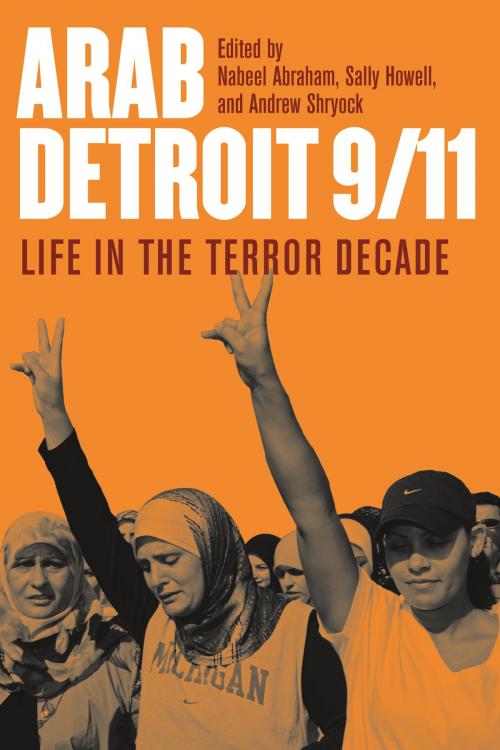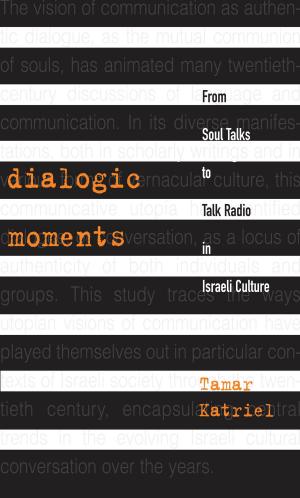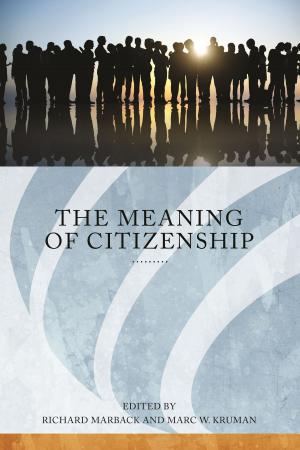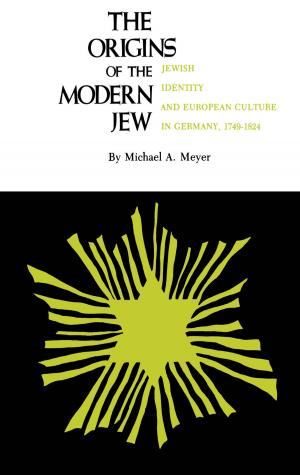Arab Detroit 9/11
Life in the Terror Decade
Nonfiction, Social & Cultural Studies, Social Science, Discrimination & Race Relations, History, Americas, United States| Author: | Nabeel Abraham | ISBN: | 9780814336823 |
| Publisher: | Wayne State University Press | Publication: | September 1, 2011 |
| Imprint: | Wayne State University Press | Language: | English |
| Author: | Nabeel Abraham |
| ISBN: | 9780814336823 |
| Publisher: | Wayne State University Press |
| Publication: | September 1, 2011 |
| Imprint: | Wayne State University Press |
| Language: | English |
Since the terrorist attacks of September 11, 2001, Detroit's large and nationally prominent Arab and Muslim communities have faced heightened prejudice, government surveillance, and political scapegoating, yet they have also enjoyed unexpected gains in economic, political, and cultural influence. Museums, festivals, and cultural events flourish alongside the construction of new mosques and churches, and more Arabs are being elected and appointed to public office. Detroit's Arab population is growing even as the city's non-Arab sectors, and the state of Michigan as a whole, have steadily lost population. In Arab Detroit 9/11: Life in the Terror Decade, a follow-up to their volume Arab Detroit: From Margin to Mainstream (Wayne State University Press, 2000), editors Nabeel Abraham, Sally Howell, and Andrew Shryock present accounts of how life in post-9/11 Detroit has changed over the last ten years. Abraham, Howell, and Shryock have assembled a diverse group of contributors whose essays range from the scholarly to the artistic and include voices that are Palestinian, Iraqi, Yemeni, and Lebanese; Muslim and Christian; American born and immigrant. The book is divided into six sections and begins with wide-angle views of Arab Detroit, looking first at how the community fits within greater Detroit as a whole, then presenting closer portraits of Arab Detroit's key ethnonational and religious subgroups. More personal, everyday accounts of life in the Terror Decade follow as focus shifts to practical matters such as family life, neighborhood interactions, going to school, traveling domestically, and visiting home countries. Finally, contributors consider the interface between Arab Detroit and the larger society, how this relationship is maintained, how the War on Terror has distorted it, and what lessons might be drawn about citizenship, inclusion, and exclusion by situating Arab Detroit in broader and deeper historical contexts. Readers interested in Arab studies, Detroit culture and history, transnational politics, and the changing dynamics of race and ethnicity in America will enjoy the personal reflection and analytical insight of Arab Detroit 9/11.
Since the terrorist attacks of September 11, 2001, Detroit's large and nationally prominent Arab and Muslim communities have faced heightened prejudice, government surveillance, and political scapegoating, yet they have also enjoyed unexpected gains in economic, political, and cultural influence. Museums, festivals, and cultural events flourish alongside the construction of new mosques and churches, and more Arabs are being elected and appointed to public office. Detroit's Arab population is growing even as the city's non-Arab sectors, and the state of Michigan as a whole, have steadily lost population. In Arab Detroit 9/11: Life in the Terror Decade, a follow-up to their volume Arab Detroit: From Margin to Mainstream (Wayne State University Press, 2000), editors Nabeel Abraham, Sally Howell, and Andrew Shryock present accounts of how life in post-9/11 Detroit has changed over the last ten years. Abraham, Howell, and Shryock have assembled a diverse group of contributors whose essays range from the scholarly to the artistic and include voices that are Palestinian, Iraqi, Yemeni, and Lebanese; Muslim and Christian; American born and immigrant. The book is divided into six sections and begins with wide-angle views of Arab Detroit, looking first at how the community fits within greater Detroit as a whole, then presenting closer portraits of Arab Detroit's key ethnonational and religious subgroups. More personal, everyday accounts of life in the Terror Decade follow as focus shifts to practical matters such as family life, neighborhood interactions, going to school, traveling domestically, and visiting home countries. Finally, contributors consider the interface between Arab Detroit and the larger society, how this relationship is maintained, how the War on Terror has distorted it, and what lessons might be drawn about citizenship, inclusion, and exclusion by situating Arab Detroit in broader and deeper historical contexts. Readers interested in Arab studies, Detroit culture and history, transnational politics, and the changing dynamics of race and ethnicity in America will enjoy the personal reflection and analytical insight of Arab Detroit 9/11.















